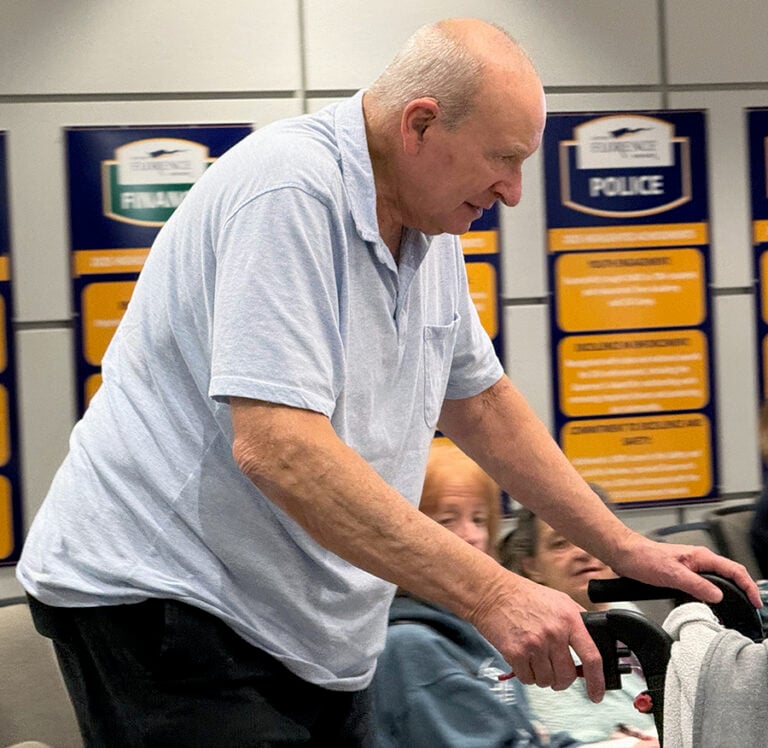One of the hallmarks of illegal drug use in Kentucky is that each epidemic tends to hit a region particularly hard before it fans out across the state.
Northern Kentucky and Louisville, for example, have suffered more than most from the recent steep increase in heroin addiction. Eastern Kentucky has been the epicenter for prescription drug abuse, while Western Kentucky was first to see the rise of locally cooked methamphetamine.
These new, more dangerous synthetic drugs represent a renewed threat, but Kentuckians have proven time and again that we can come together and lead the country when it comes to taking on illegal drug use.
I witnessed one of these regional trends myself when synthetic drugs invaded the southwestern counties I represent along the Tennessee border. While most drugs sold illegally are hidden from the public eye, these drugs were displayed prominently on the counters of many of our convenience stores. Even children could buy them without supervision.
It did not take long before we began hearing horror stories about teenagers and young adults winding up in our emergency rooms, many in a psychotic state. They were buying products intentionally mislabeled as bath salts and plant food or known by such other names as K2 and synthetic marijuana.
Law enforcement had a difficult time prosecuting the underground chemists and the retailers selling this poison because the law at the time was geared more toward such “traditional” drugs as heroin, cocaine and marijuana.
Other state officials and I also learned that banning the synthetic drugs individually was not an effective approach. All it took to make a law toothless was a small tweak in the chemical formula.
In 2012, however, I sponsored legislation that mostly put a stop to this cat-and-mouse game. That law, the second of its kind in the country and now a national model, made it much easier for state officials to quickly ban new variations of synthetic drugs. It also cracked down on retailers who refused to stop selling them. The work we did then, coupled with vigorous enforcement, helped turn back what could have been a far worse problem.
Unfortunately, there is always a need to stay vigilant when it comes to illegal drug use, a reality made all too clear to me earlier this year.
Just days after the 2015 legislative session culminated with a comprehensive and landmark update designed to reduce heroin addiction, law enforcement came to me with concerns about a disturbing return of synthetic drugs ordered online and delivered by mail.
I quickly convened a meeting to hear from many of the same stakeholders I have worked closely with over the past six years as chair of the House Judiciary Committee. We used this time to gauge just how widespread the problem is and what steps we should take next.
The issue will be covered more in-depth during the committee’s August meeting, and I will be filing legislation later this fall that will turn these preliminary ideas into something the House and Senate can consider when we convene the 2016 Regular Session in January.
It is admittedly tough for one state to take on Internet sales involving shady companies based in other countries, so greater federal involvement will be key. Nonetheless, Kentucky was at the forefront of stopping rogue pharmacies from illegally shipping prescription drugs here a decade ago, so we do have a blueprint for success to follow.
One area where we can make an immediate difference is modifying the penalties for those selling or possessing synthetic drugs. The 2012 law was built on the assumption that the drugs at the time were equivalent to marijuana, but it’s becoming increasingly clear that newer versions are much more dangerous and addictive. It may be time to reclassify these drugs so that dealers face a more serious crime.
As we continue to increase access to treatment, we recognize the need to work together with communities on education and prevention. These new, more dangerous synthetic drugs represent a renewed threat, but Kentuckians have proven time and again that we can come together and lead the country when it comes to taking on illegal drug use.
In readying for the next front in this ongoing battle, I am confident we will continue to shepherd innovative drug policy that protects public safety and promotes public health.
Rep. John Tilley, D-Hopkinsville, represents Kentucky House District 8. He is chair of the House Judiciary Committee.


















